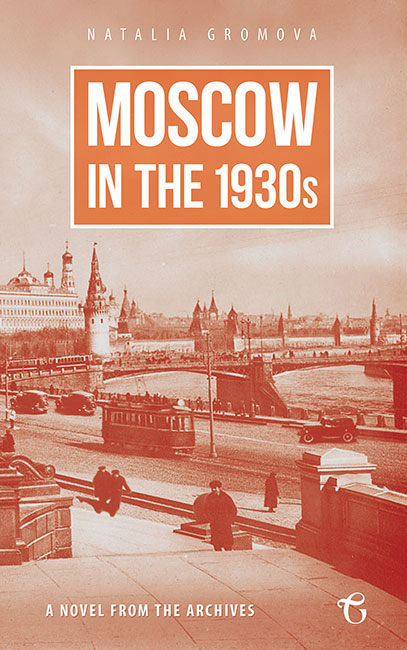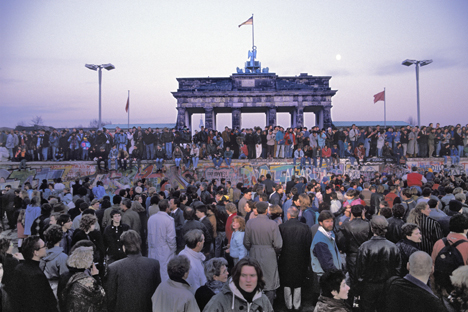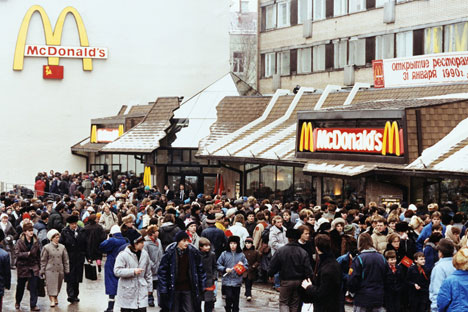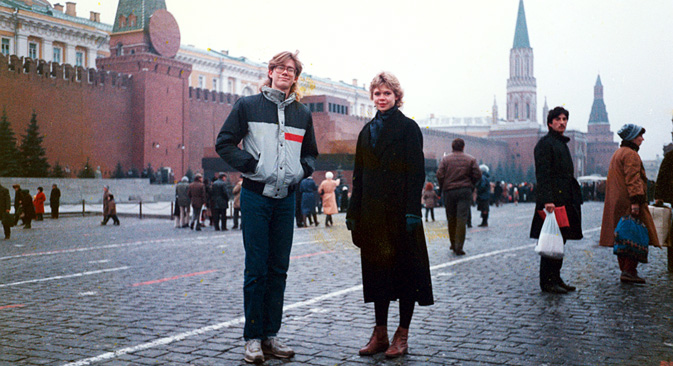New novel reveals the bygone Stalinist Moscow
Natalia Gromova was born into a military family in the Russian Far East in 1959 and moved to Moscow at an early age. Gromova is a writer and researcher specializing in the literary life of the 1920s – 1950s. Her books (The Knot. Poets: Friendships and Breakups, Wanderers of War. Memoirs of Writers’ Children and The Tablecloth of Lydia Libedinskaya) are based on private archives, diaries and face-to-face conversations with real people.
***
 |
| By Glagoslav Publications |
Chapter 6. The House That Flew Away
A story
Whenever I had a fight with my parents, I would always imagine that I had been a foundling child. This started when I was around ten years old. Any reproach from my father was all it took for me to think: I probably wasn’t their own child, they were concealing the truth from me, and somewhere out there my real parents were walking around, they would never raise their voices at me, and they certainly wouldn’t cuff me on the nape. My tears would flow as I felt sorry for myself.
I would turn over these tragic, and, at the same time, sweet thoughts on our balcony. The balcony was small, with thick bars, and it hung over an enormous yard. The building consisted of communal apartments, though for some reason it was called “The Generals’”, and it featured a silver-painted Lenin in the flower bed, a skating rink with gypsum figures of Pioneers at the entrance, and a green gazebo built from wooden boards, from which one would hear the squealing of girls or the twang of a guitar in the evenings.
The balcony became my place of solitude for a long time, and there I would meditate on the vanity of all things. I would look out from the heights of the ninth floor at the little shapes of people below: perhaps my real mother and father were there among them, and they couldn’t even guess that I was watching them? The history I bore inside my head got increasingly intricate, someone turned out to be someone else, someone learned from someone else about my family’s past, and, a miracle!, finally everything would be cleared up. My current parents would get down on their knees before me and beg me not to leave them. At the end of the play that was acted out before my inner gaze, I forgave everyone. Everyone would embrace.
When the first warm days came, the balcony served as my bed. I placed an old mattress on its concrete floor, covered it with my father’s military cloak, and, when evening fell over the city, I would crawl into a sleeping bag. There, freezing, I would look through the bars at the endless space of the city lying under me. In the distance the Moscow River flowed on with little flames. Over it hung a metro bridge where shining metro carriages would run. I felt that I wasn’t lying there, I was flying over the City, and my balcony was the basket of a hot-air balloon setting off straight into the sky.
We ended up in this building in a completely miraculous way: our family received the right to move from a communal apartment on the outskirts to a 12-floor building on Prospekt Kalinina [now Novy Arbat street - RBTH], which furthermore stood right on the bank of the Moscow River. Back then my father had taken me, a nine-year old girl with braids down to my shoulders, to look at the new apartment. It was on the ninth floor. We spent a long time going up in the elevator with its varnished wood and mirrors gleaming on both sides. It took our breath away.
On a light-colored door a nameplate shown, where “Colonel Malyshev” was written in cursive. I looked at my father with surprise.
“Those are the neighbors we’ll have. Imagine, there is only one family living there now, and not ten like before.”
A door was opened to us by a gray-haired military man, but this turned out to be not Colonel Malyshev but Major Kuzhelkov; he was frantically tying books and clothes up into bundles, and his movements had a strange haste to them, as if he was trying to escape from there as quickly as possible. It was precisely in these two rooms that Kuzelkov was now emptying, that we were going to live.My father leaned over him and cheerfully asked:
“Well, how’s life, comrade major, how are the neighbors?”
Kuzelkov shuddered. For a movement he froze over the boxes and, without lifting his gaze, he said:
Ah, yes… People are different. It didn’t work out for us. Maybe things will be different for you…
My father only answered by nodding cheerfully. It was obvious how much he liked the two large and well-lit rooms after the one room where the four of us had been living, how he was joyously looking down on Prospekt Kalinina with people swarming like ants, on the old lanes of the Arbat that were being demolished ahead, and how he was happy to see a new Moscow being built. He grabbed me under my arms and set me before the enormous window, so that I would feel the same surge of happiness that he did.
Our neighbors turned out to be three women.
The mother was a woman already advanced in years with gray strands of hair covering her sharp eyes, and with a ceaseless grin that could change from obsequiousness to sarcasm – she was Colonel Malyshev’s widow. The two unmarried daughters – Lyuda and Galya – worked at a secret military facility. At first, when they met us they would smile, but their faces really lit up when they saw men, and especially soldiers.
They resembled their mother to a degree, but this resemblance only became visible when their expressions grew dull. They considered themselves ladies of marriageable age, and they would organize birthday parties at their place with the married officers from their workplace. However, their coworkers, after raising toasts, kissing the ladies’ hands in farewell, and eating and drinking up everything laid out on the table, would go home in the evening to their wives and children. Lyuda and Galya probably cried at night from the unfairness of life; I would sometimes hear sobbing sounds coming from under their door. In the morning, they would apply a thick layer of powder to their faces, put on long fringed skirts that resembled drapes, hang a lacquered handbag on their arms, and set off to work.
For some reason, at the very beginning of our life in the new apartment, Valentina Ivanovna – that was the name of the mother of the family – led me on an excursion through their rooms.
Two huge carved cupboards, reaching to the ceiling and covered with black varnish, gloomily looked at one another from opposite sides of the living room. In the near future these monsters, which could neither be disassembled nor taken out of the apartment, would in a way determine the fate of our family; all attempts to exchange apartments, to move out of one’s present one, had been unsuccessful (so our neighbors said) because of those cursed cupboards. It was as if these fossils reared back so that no one could move them from their place.
In the meantime, however, I looked with amazement at these strange rooms, where semi-darkness reigned and there was a smell of naphthalene and dampness; I was amazed that on top of everything – the piano, armchairs, and even the table – white covers had been placed. To start with, Valentina Ivanovna brought me to the window; across from us the skeleton of an tall old building rose askance, and a wrecking ball was mutely smashing through it.
“That was the prison where Nadezhda Konstantinovna Krupskaya was sent!” she said triumphantly. I felt awkward, and not knowing how to answer this, I asked:
“Where is your husband, Colonel Malyshev?”
Valentina Ivanovna gave me a severe look, and I even thought she winced.
“What a curious little girl you are,” she said, grabbing me roughly by the elbow and pushing me towards the next room. She opened a glass door covered with a white piece of fabric. I glanced around me: this was the bedroom, and in the center there was an enormous double bed with a bed cover over it. I shivered: for some reason, it seemed that now Colonel Malyshev himself would crawl out from under the white bedclothes.
I lifted my head. Over the bed, an enormous photograph hung in a heavy frame.
“That’s him!” the window said triumphantly, and her obsequiously sarcastic smile distorted the expression on her face.It was no portrait from waist up showing him with his medals. Instead, the photograph showed a coffin covered with flowers and wreaths, in which a man with a powdered face lay in parade dress. Over him Valentina Ivanovna towered stoically in a black hat, along with her two daughters, and behind them was a sea of epaulets flowing over the enormous hall with white columns.
I was still at the tender age when not only the dead, but even the mere sight of a coffin or cemeteries filled me with an inexplicable horror. Once, when I was going out the door of our apartment, I saw two men bringing a coffin down from the top floor. The elevator was too small for it, so they had to carry it down. I ran down the stairs as if death itself were chasing me. Furthermore, in “The Generals’”, there was a village tradition, which I now know to be quite old, of placing a coffin on stools in front of the building entrance, so that all of the deceased’s neighbors could say their farewells. I would try to walk past it without opening my eyes.
The photograph on my neighbor’s wall always placed thoughts in my mind of how she wasn’t entirely normal. However, I didn’t try to share my conclusions with my parents.
They were young and naive; they were hardly into their thirties. They were enjoying the enormous size of the rooms, the large kitchen and some freedom in when they could use the toilet and bath. Meanwhile, I tried to get used to my new life.
Unfortunately, after some six months had passed, my parents’ relationship with our neighbors broke down. Why that was, I cannot remember, but it happened suddenly, at once, and for good. Once, when I was going into the kitchen, I saw a huge dog chain and lock on the refrigerator door. I ran into our room saying that Valentina Ivanovna had probably got herself a dog that lived in the refrigerator. My parents only shook their heads sadly, and my father said obliquely:
“Remember what Kuzelkov said.”
From my mother’s nervous shout coming from the kitchen, I realized that our life in the apartment had changed. We could no longer go into the kitchen freely – Valentina Ivanovna would come out of nowhere, switch off the light that I had turned on, and stand next to the light switch like a statue wrought from stone, her eyes gleaming in the darkness like (as I would imagine) the piercing gaze of a wolf. Now our neighbors wouldn’t talk to us any more. They would only show us with their bearing that there was no room for us in Colonel Malyshev’s apartment.
Moscow in the 1930s. A Novel from the Archives by Natalia Gromova at Glagoslav Publications.
All rights reserved by Rossiyskaya Gazeta.
Subscribe
to our newsletter!
Get the week's best stories straight to your inbox


